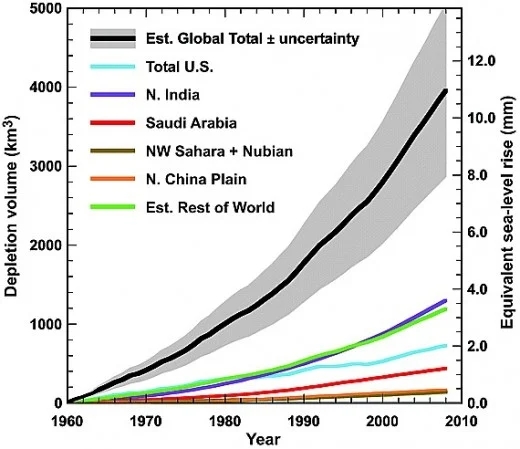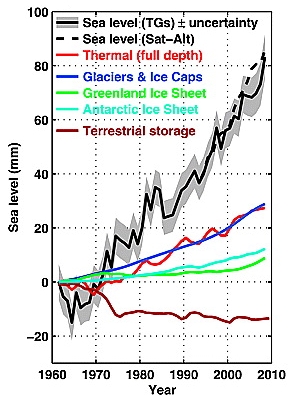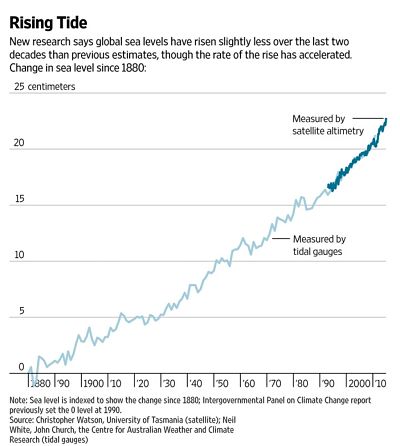Sea Level Rise - Effect of Global Warming Versus Groundwater Extraction
Slowly but surely the sea level around the world is rising and threatening to engulf island nations and coastal communities. The major cause has been attributed to global warming through melting ice in glaciers and the in Antarctic and the simple expansion of seawater as it warms. There has been much debate about whether humans are responsible for Global Warming and Climate Change, but another significant cause has been identified for which humans are clearly responsible - Groundwater Extraction.
Much of the water extracted from underground aquifers to the earth's surface eventually drains into the sea. This extraction and transfer leads to a small rise in sea level. For an interesting and jovial look at the ways humans could lower sea levels by deliberate actions. See: Mega-Engineering Solutions to Sea level Rise - Buckets and Plug-Holes.

In the past it has been difficult to measure the contribution of groundwater extraction to sea level changes and so it was not really been considered as a major potential source. However recent studies have been able to model changes in groundwater heights in about 46 aquifers with long term records, and extend the results to the remainder of the aquifers throughout the world.
This study estimated that about 4,500 cubic kilometers of water was removed from aquifers between the years of 1900 and 2008.This accumulated extraction equates to about 12.6 mm centimeters of the total rise in sea levels of 170 mm in the same period. This represents to about 6% of the total sea level rise recorded during this period.
The rate of groundwater depletion has risen greatly since about 1950, peaking in the recent period from 2000 to 2008 to 145 cubic km per year, which is equivalent to 0.40 mm/ year of sea-level rise. The groundwater depletion from 2000-2008 represents about 13% of the reported rise in seal level of 3.1 mm per year during this recent period. The 12.6 mm may be small but if extraction rates continue groundwater could become a major contributor to seal level rise in the future. Some developed countries are putting caps on aquifer use, some ground water reservoirs have run dry and some countries are even trying to refill them from rainfall, so this trend may not continue.
In another study the same group of authors compared the different sources contributing to sea level rise and found that groundwater extraction (12.6 mm)was almost as significant as the ice melt in Greenland and Antarctica combined over the same period of time.



Another human effect on sea level changes arises because of the net effect of water storages which retain water that would otherwise drain into the oceans. The retention of water in man-made reservoirs, with associated seepage into the surrounding soil reduced sea level by around 30 mm from 1900 to 2008, mostly after 1950 (slightly over 0.5 mm per year. This a significant amount compared with the contribution from the melting of glaciers.
This shows that humans can affect sea level in ways apart from global warming and climate change.